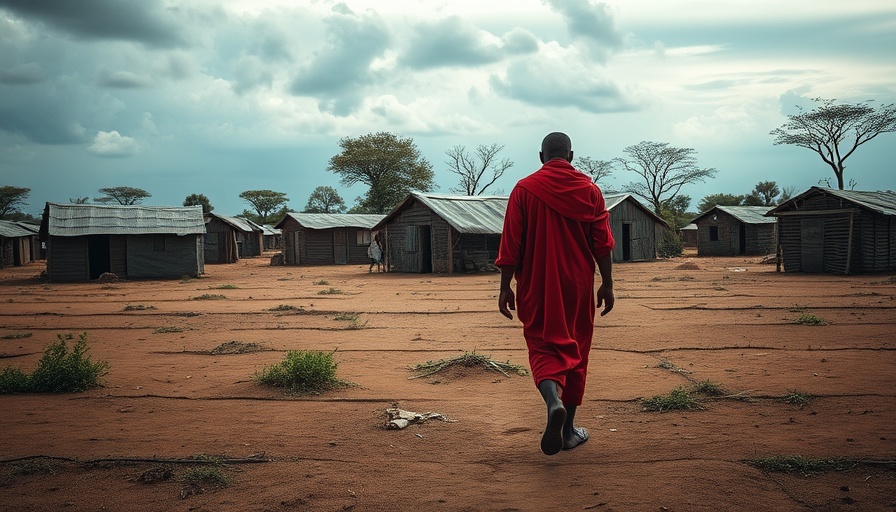
The Unforgiving Climate: Drought's Deadly Grip on Africa
A new report backed by the UN has revealed the catastrophic effects of droughts that have plagued Africa and the global community in recent years. This detailed analysis from the UN Convention to Combat Desertification (UNCCD) highlights that climate change and the relentless depletion of resources are exacerbating drought conditions, contributing to one of the most serious crises seen in recent history.
Facing the Harsh Reality of Severe Food Insecurity
Currently, 90 million people in Eastern and Southern Africa confront acute hunger, the outcome of severe drought conditions that have failed crops and drained livelihoods. Areas like Ethiopia, Zimbabwe, and Malawi have seen crop failures that rendered vital food supplies nearly nonexistent. In Zimbabwe alone, maize production hit a staggering 70% decrease year-on-year, leading to soaring prices and the tragic deaths of thousands of livestock due to drought.
The Global Drought Landscape: Implications for Investments
The report emphasizes the necessity for systematic monitoring of drought's impacts, as drought morphs from a local issue to a pervasive global threat. The alarming situation poses significant risks not only to human life but also to the larger economic framework in which Africa operates. For business leaders and policymakers, these conditions underscore the urgency for strategic initiatives focused on climate resilience and sustainable agricultural practices. There is a poignant intersectionality between Africa's environmental challenges and its economic viability; hence, immediate action is both a humanitarian necessity and a strategic imperative.
Re-evaluating Global Resilience Mechanisms
As advocates for innovation and sustainability, investors should recognize these crises as opportunities to foster resilience. Investments in water management, sustainable agriculture, and climate adaptation initiatives can drive both economic growth and environmental sustainability. Policymakers must catalyze support for these initiatives, ensuring frameworks are in place that empower local communities while preserving ecological health.
The Path Forward: Embracing a Collaborative Approach
With the forecast for ongoing drought heightened, it’s vital for leaders in business and governance to adopt cooperative actions that weave together technology, policy reform, and community engagement. The holistic approach not only mitigates risks associated with drought but also strengthens Africa's position in the global economy and international trade.
 Add Row
Add Row  Add
Add 


Write A Comment